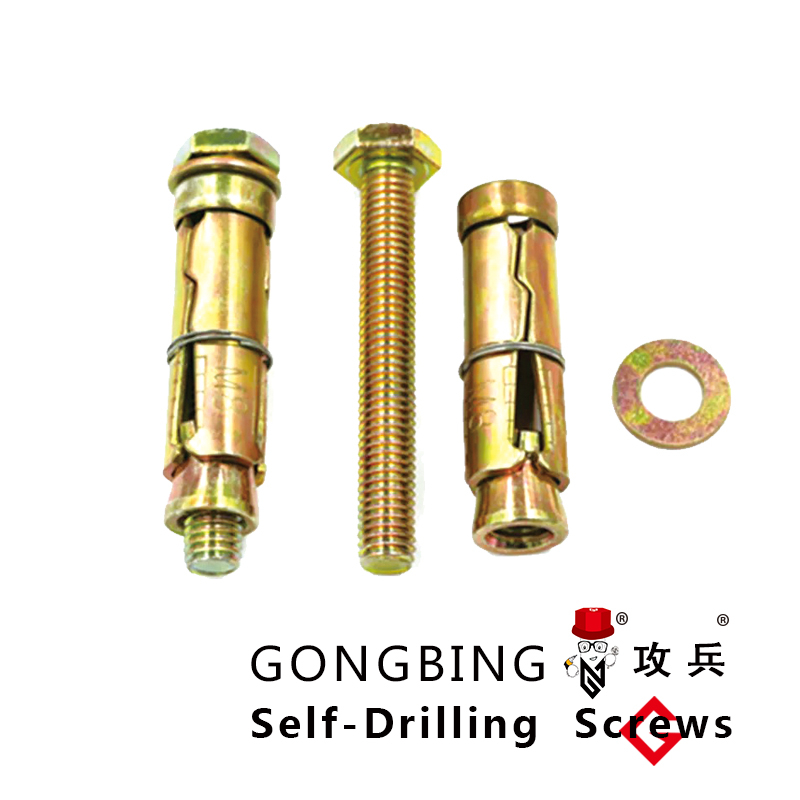Chemset Fasteners for Reliable and Durable Bolting Solutions in Construction and Industry
Understanding Chemset Bolts A Reliable Fastening Solution
In the realm of construction and engineering, the choice of fastening solutions is critical to the integrity and safety of structures. One of the innovative products that have gained traction in recent years is the chemset bolt. These bolts offer a reliable means of anchoring, particularly in applications requiring high strength and durability. This article aims to delve into the specifics of chemset bolts, their advantages, applications, and installation methods.
What are Chemset Bolts?
Chemset bolts are a type of anchor bolt that utilize a chemical bonding system to secure themselves into various substrates, primarily concrete. They are equipped with a sleeve or cartridge containing a resin or adhesive that cures when mixed with a hardener. Upon installation, the chemset bolt is inserted into a drilled hole, and the resin is activated. As the resin cures, it forms a solid bond with the surrounding material, creating a strong and resilient fastening solution.
Advantages of Chemset Bolts
1. High Load Capacity One of the standout features of chemset bolts is their ability to handle significant loads. This high load capacity is crucial for applications such as structural supports, where the strength of the fastening solution directly impacts the stability of the structure.
2. Resistance to Harsh Environments Chemset bolts are designed to withstand extreme conditions, including high temperatures, moisture, and chemicals. This makes them an ideal choice for outdoor applications or in environments where exposure to corrosive substances is a concern.
3. Versatility These bolts can be used in a variety of materials, including concrete, brick, and masonry. Their versatility makes them suitable for a wide range of applications, from heavy construction to light industrial projects.
4. Better Performance in Cracked Concrete Chemset bolts are particularly effective in cracked concrete, where traditional mechanical anchors might struggle. Their adhesive characteristics allow for secure fastening in these challenging conditions, ensuring the safety and stability of the installation.
5. Reduced Risk of Pullout or Shear Failure Due to their chemical bonding properties, chemset bolts have a lower risk of pullout or shear failure compared to conventional mechanical fasteners. This enhances the overall safety and reliability of the installation.
Common Applications of Chemset Bolts
chemset bolts

Chemset bolts are employed in a variety of applications across different industries. Common uses include
- Structural Engineering In the construction of buildings and bridges, chemset bolts provide robust anchorage that is necessary for load-bearing elements. - Industrial Applications Machinery and equipment installations often require secure fastening methods, making chemset bolts a favored choice in industrial settings. - Infrastructure Projects From roadways to retaining walls, chemset bolts are used to ensure that critical infrastructure remains securely anchored over time.
- Mounting and Retrofitting Chemset bolts can be used for mounting fixtures such as signage, HVAC systems, and cameras within existing structures without compromising the integrity of the materials.
Installation Process
The installation of chemset bolts requires careful preparation and execution to ensure optimal performance. The process typically involves the following steps
1. Drilling the Hole A hole of the correct diameter and depth is drilled into the substrate. Cleaning the hole to remove dust and debris is essential for optimal bonding.
2. Inserting the Chemset Bolt The chemset bolt is then inserted into the hole along with the resin cartridge, following the manufacturer's instructions regarding mixing and activation.
3. Curing Time After insertion, the adhesive must cure for a specified period, during which it achieves its full strength. It's crucial to adhere to this timeline before applying any loads.
4. Final Checks After curing, a final inspection ensures that the installation meets all necessary safety and performance standards.
Conclusion
Chemset bolts represent a significant advancement in fastening technology, providing a robust and flexible solution for various construction and engineering challenges. Their unique chemical bonding properties, high load capacity, and resistance to environmental factors make them a go-to choice for professionals in the field. As construction techniques evolve and the demand for reliable fastening solutions increases, chemset bolts are likely to play an even more prominent role in ensuring the safety and integrity of structures worldwide.
-
Weatherproof Plastic Expansion Anchors for OutdoorNewsJun.06,2025
-
Sustainability in the Supply Chain: Eco-Friendly TEK Screws ProductionNewsJun.06,2025
-
Load-Bearing Capacity of External Insulation FixingsNewsJun.06,2025
-
Double Head Bolts: Enhancing Efficiency in Industrial MachineryNewsJun.06,2025
-
Corrosion Resistance in Chipboard Screws: Coatings for Wholesale DurabilityNewsJun.06,2025
-
Butterfly Toggle Bolts : Enhancing Structural ResilienceNewsJun.06,2025
